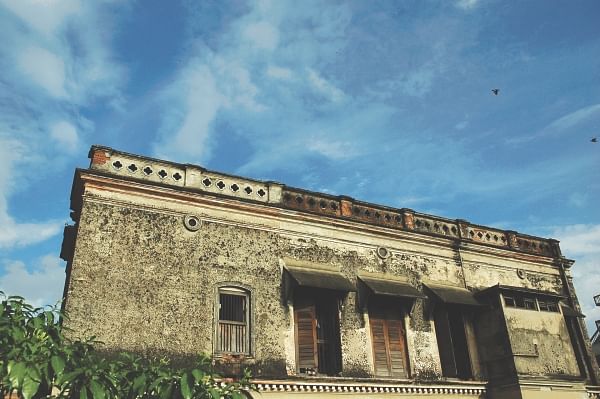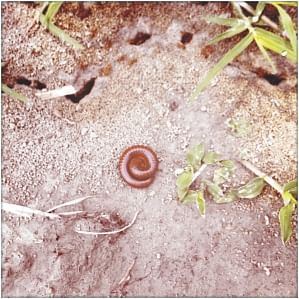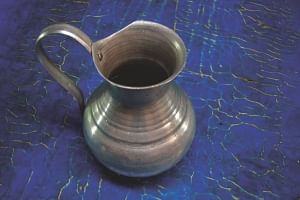| Home - Back Issues - The Team - Contact Us |
 |
| Volume 11 |Issue 32| August 10, 2012 | |
|
|
The Man who would not Die Humayun Ahmed Badrul Alam was on his way to taravi prayers that Ramzan evening, but paused in front of the bungalow and peeped inside. The room was dark. Badrul Alam was surprised because, just before beginning his magrib prayers that evening, he had expressly ordered that lights be placed inside the bungalow. None of his servants ever seemed to obey the orders he gave them. He started trembling in his fury. Recently every time he became angry, he started to tremble. It was impossible to stand too long inside the bungalow. The smell was nauseating. Who could imagine that when the human body started to rot it would exude this dreadful smell? The smell assailed one's nostrils and went right up to one's brain. The head started throbbing. And one felt nauseated. Badrul Alam covered his nose with his handkerchief. He should have covered his nose before entering the bungalow. He had just eaten and might throw up his entire dinner. He had told his wife not to give him food. He would eat after taravi prayers, but his wife would not listen. Nowadays no one listened to him. With his handkerchief to his nostrils, he called out, “Ai-ee, ai-ee.”
There was no response. He wondered whether the man was dead. Strange, that he should still show no signs of dying though half his body was rotting. The doctor at the Upazila Health Complex had written him off. He had said, “What's the point of keeping him in the hospital? Two days at the most? Take him home. He will die in peace among his relations.” And the asses had to bring him and put him inside his bungalow. How ridiculous! Is this his house? He was astounded at their audacity. The bungalow is used for several purposes. People come to visit. And they leave a half-dead man here! The terrible smell exuding from the bungalow will ward off visitors. One's gorge rises at the stench. He called a little louder, “Ai-ee, ai-ee.” There was no response. He tried to listen carefully. There was no sign of any breathing. No sign of any movement. I do believe he's dead. Strange, the utter callousness of my servants! A man is about to breathe his last any moment, and they have not bothered to give him a light. Despite my having told them, just before magrib prayers, to give him a light. Who knows how long ago he died? The place is dark. Maybe dogs and jackals have dragged the body away and eaten it up. He removed the handkerchief from his nostrils. Immediately the smell assailed him, but he didn't allow the smell to bother him too much. He lit a match. The room brightened up slightly. No, he's not dead. He's staring at me. The doctor said he would not last more than two days. The doctors of these days seem to know nothing. How can a patient who is supposed to live for only two days, survive for thirteen? Badrul Alam asked, “Are you alive?” Yunus did not reply. He had not answered because he had been afraid. He is very afraid of Badrul Alam. On top of that, he is not even a daily labourer in this house. He used to work in a neighbouring village. They had not been willing to keep him, so they had brought him over here. Even Badrul Alam had not been willing to keep him. He hadn't said anything because he had heard that the man would not last more than two days. On top of that, it was Ramzan. Badrul Alam said in an angry voice, “Didn't they give you any light in your room?” “They did. It went out.” Kupi lights tend to go out in the breeze. Not many people come to the bungalow, so it's risky having a hurricane lantern. A thief might come and take it away. This man will just keep on staring. He will not be able to do anything. “Did they give you something to eat?” Before Badrul Alam left the room, he lit the kupi once more. Let the light last as long as it could. Everyone was waiting for him at the mosque. The taravi prayers started as soon as he entered. The prayers themselves did not take too long, but it seemed as if the doa would never end. The same doa was repeated in Bengali, Urdu, Arabic – several languages. The maulana's job was still temporary. It would be made permanent after seeing how well he performed his duties during the month of Ramzan. That is why the rascal is trying to impress me through a lengthy, multi-lingual doa. On top of everything, at the end of the doa, he has burst into loud sobs. How irritating! Badrul Alam thought of giving the maulana a piece of his mind. He was the chairman of the mosque committee. Though it wouldn't seem proper on his part to say these things, nevertheless, he would have to. People have their own obligations. It wasn't possible for them to spend their whole nights in prayer. The maulana reached the final portion of the doa. “Oh dear friend of our dear prophet, if we do not raise our hands to you in prayer, to whom can we turn? You yourself have said in the Quran Majeed, 'Marajal bahraini yaltakeian,' that is, He it is who has maintained the two huge expanses of water. 'Bainahum barzakur' that is, between them is a natural curtain.” Badrul Alam grew even more irritated. It seems as if tonight's prayers will never end. It is necessary to say something to this maulana. Because I have said nothing to him earlier, he is doing whatever he pleases. Finally, the doa came to an end. Badrul Alam said in a sombre tone, “Maulana Sahib, I'd like a few words with you.” The maulana felt nervous at the tone of Badrul Alam's voice. Not waiting for Badrul Alam to speak, the maulana quickly said, “I went to him as you had ordered me to. He is unwilling. This work cannot be done by force. If you wish, I will go again today.” “What are you talking about?” “You told me to administer the taoba to him. He is unwilling to do taoba.” Finally Badrul Alam realised what the maulana was talking about. He had told him last week to persuade Yunus to do taoba. If one does taoba, the job is completed within three days. He was under the impression that the maulana had made the man do taoba. Now he realised that the maulana had done nothing. “Why doesn't he want to ask for pardon?” “What relationship does living or dying have to do with his doing taoba? Life and death are in God's hands. Come with me immediately. Make him ask for God's pardon. He will not be unwilling to do so in my presence.” “Very well, Sir.” “On top of everything, it would be better for him to die at this time. The gates of Paradise are wide open for all who die during the month of Ramzan. What do you all say?” Everyone nodded agreement. One piped up, “Sir, even his own father and mother have not done what you have for him. You have done more than twice what his parents would have done.” Badrul Alam asked in a grave tone, “Who am I to do anything? God does everything. We are only the means. The other day Kuddus Sahib came to me and said, 'What are you doing? Go and throw him somewhere else.' I said, 'Kuddus Sahib, don't say such things during the month of Ramzan.'” One rebuke was enough to make Yunus Meah agree to do taoba. The maulana said, “This time God will save you from the tortures of Hell. You are now as pure as a seven-day-old child. You will go straight to Paradise. Do you understand?” “Yes, I do.” “No, no. You must say, 'I relinquish all earthly claims. No one owes me anything.'” The maulana sahib was staying inside the mosque. The mosque committee was supposed to have built him a house next to the mosque, but it had not been built yet. Of course, everyone was expecting Badrul Alam to build it. If he said, “Yes” once, it would be enough. The maulana sahib paid a visit to Badrul Alam on his way to the mosque. Badrul Alam asked, “Has the taoba been properly taken care of?” “Yes.” “The end is approaching. No one lives more than three days after the taoba. But he'll go sooner.” “What is wrong with him?” “On the twenty-seventh day of Ramzan my daughter and her husband will be coming to stay.” The maulana said confidently, “He'll not last beyond a couple of days.”
But Yunus Meah was still alive four days later. If anything, he was even chirpier. But it was clear that his condition was very bad. Previously, the stench had only surrounded the bungalow, but now it started to enter the house itself. On the advice of the Sanitary Inspector, phenyl was generously sprinkled around the house. The smell, however, still persisted. Jackals started prowling around the bungalow. They were unable to resist the smell of putrefying human flesh. Badrul Alam went to see him, handkerchief clamped to his nostrils. “How are you?” “Well, Sir.” Hearing this, the maulana sahib said, “The time is swift approaching. Azrael is prowling around.” Badrul Alam was disgusted at the maulana's words. What nonsense! Azrael prowling around! Who knew whether the rascal had made him say the taoba properly? “Maulana Sahib?” “See whether you can have it done once more. I'm only saying this because of the man's suffering. For no other reason.” “I'll make him say it once more today. There is no problem. The taoba can even be said twice in one day. There is a hadith of our Prophet's in this connection. Our dear prophet has said . . . .” “Never mind all that. I will hear you another day.” The maulana sahib said, “Occasionally, when there is some secret longing, the soul does not want to leave the body. It is necessary to find out if there is anything he would like to eat. Or if there is someone he would like to see.” “Very well, I'll find out.” Yunus was astonished when he heard that he would have to repent a second time. He chirped up, “But I've done taoba once. I have not committed any sin after my taoba.” The maulana said irritably, “Don't be sacrilegious. It is not up to you to judge whether you have sinned or no, but up to God Almighty.” The taoba was administered once more. He was given rice with tamarind water. As soon as he had finished eating, he started having difficulty breathing. His chest heaved rapidly. His eyes seemed to be popping out. Badul Alam sent word to the maulana. If anything happened it would be better to have everything done during the daytime. Nothing happened during the day. At night the breathing became somewhat easier. The maulana retired for the night. Before leaving, he told Badrul Alam, “We will have to wait for another day.” Badrul Alam said drily, “What will happen after one more day?” “It will be the dark of the moon. His wheezing will become unbearable then.” Badrul Alam said in an irritable tone, “Sometimes you talk about Azrael, at other times you talk about the dark of the moon. Does Azrael see whether the moon is full or no before he appears?” On the twenty-seventh of the moon, the condition of Yunus was really grave. A rattling sound came from his chest. He started foaming at the mouth. It was easy to see that he would not last till morning. Mrs Badrul Alam also paid him a visit, with her face muffled in her sari anchal. He had left his food uneaten on his plate. He had not even touched it. Mrs Alam said, “Give him some water to drink. Can't you see that his lips are parched? Poor soul.” Towards morning, Badrul Alam came to see how he was. Yunus said, “At night a jackal entered. He bit my hands and feet. Please tell them to keep a stick near me. A hurricane lantern also.” Badrul Alam said not a word. As it was, during Ramzan his temper was always high. Today his temper rose to the high heavens. During iftari he told Majnu, “See that a stick is kept by Yunus's bedside. And a hurricane lantern.” Majnu was a worker in Badrul Alam's household. His work was to tend Yunus. This work was not to his liking because by this time Yunus could not feed himself. He had to feed him. Majnu felt like throwing up in disgust. Majnu said, “That Yunus is a rascal.” Majnu replied, “The maulana sahib made him do taoba twice, but the rascal did not say the taoba even once. Whatever the maulana asked him to say, he said the opposite in his mind.” “Who told you this?” After magrib prayers, Badrul Alam dropped in to see Yunus. There was a stick next to Yunus. The hurricane lantern was lit. “How's everything? I hear you haven't said the taoba.” For a long time Badrul Alam kept looking at Yunus. One of his legs had swollen up like a bolster pillow. Most likely the jackal had bitten that leg. Yunus said, “If you insist, I'll say taoba once more. Properly.” “Never mind, there's no need for that any more. If you are so eager to live, let me see what I can do. Come, I'll take you to Mymensingh . . . . Let's see what happens.” Yunus did not quite understand. He kept staring blankly. Badrul Alam arranged for a bullock cart that night. First they would have to go to Netrokona. From Netrokona to Mymensingh. If the doctors couldn't do anything there, they would have to take him to Dhaka. The bullock cart started at eight that night. Badrul Alam surprised everyone by accompanying the cart himself. A lot of running around would have to be done. It would not do to rely on others. “Yunus?” Yunus's eyes grew wet. He tried to hang on with all his might. The cart started to gain speed.
|
||||
Copyright
(R) thedailystar.net 2012 |


